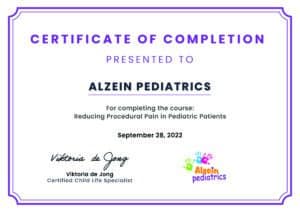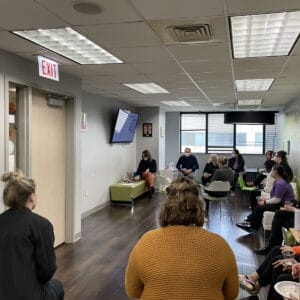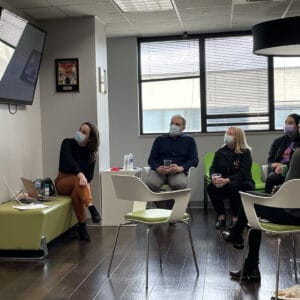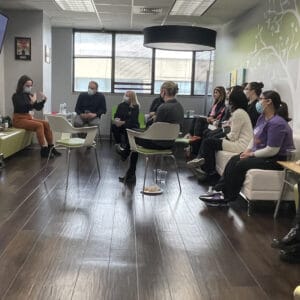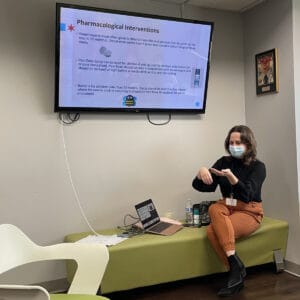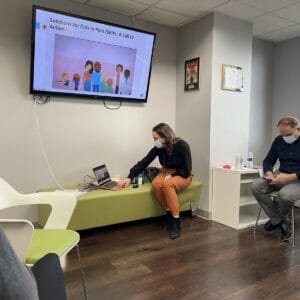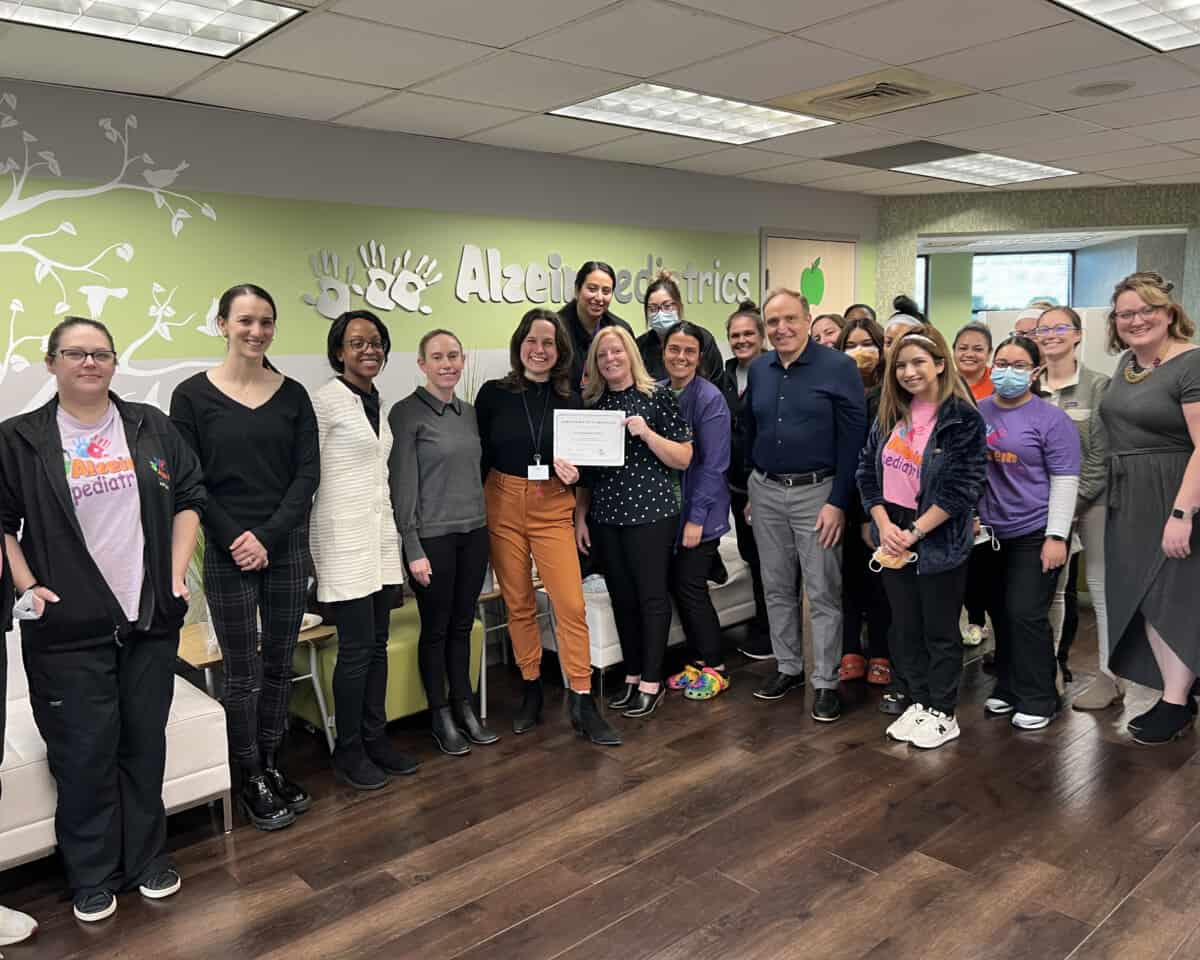When today’s parents bring their babies and children into the pediatrician’s office, many times they are also bringing their own apprehension and foreboding along with that diaper bag. Their own parents probably did the same, flooded with memories of serious nurses all in starched white who administered “shots” with little compassion.
Alzein Pediatrics in Evergreen Park and Oak Lawn is determined to break that cycle. Dr. Hassan Alzein and his staff are learning from Viktoria De Jong, Certified Child Life Specialist, to help relieve patient – and parent – pain and anxiety during immunizations and other medical procedures in a special staff workshop.
Impact of Trypanophobia
“We know now that there are serious negative impacts of experiencing pain in a medical setting early in life,” says De Jong. “It creates a huge psychological barrier.”
Research shows that, because of poor pain and comfort management, up to 2 out of 3 children have trypanophobia, the fear of needles. 1 in 4 adults continues to be panicked about blood tests, immunizations, IVs – anything related to a needle. In fact, about 16% of adults avoid vaccinations because of bad experiences during childhood.
“These statistics clearly prove that the traditional thinking of “they’ll get over it” when a child screams and cries during immunization is very wrong. These feelings carry over into adulthood and impact a person’s willingness and ability to access healthcare, either for prevention or treatment of an illness or injury,” says De Jong.
“If we can help your baby with shots, why don’t we?”
De Jong, who has worked at La Rabida Children’s Hospital and is now with the Chicago Department of Public Health, says helping little patients with simple pain management techniques can make a huge difference in their attitude about health care for their entire lives.
“The best thing that can happen to a pediatrician is that, when we enter an exam room, our patient smiles and is happy to see us,” says Dr. Alzein. “As a practice, we are always looking to improve, be that through new medical advancements or through care techniques that make each experience more positive for our patient families.”
De Jong says that the physical, psychological, and pharmaceutical techniques she teaches have benefits for the patients, the parents, and the healthcare providers themselves. “People enter the pediatric profession to help children, to make them feel better. Providers are more satisfied with their jobs when they don’t feel they are hurting children, even while protecting and caring for them.”
Among other skills and techniques, De Jong teaches comfort holds. These holds, performed by the parent or caregiver after a demonstration by an Alzein healthcare provider, will make a child feel safe and protected, but not trapped. She also teaches the use of Buzzy, a hand-held device that vibrates and chills the vaccination site, blunting pain from the needle stick.
“Pain management and anxiety-relieving techniques are easy to do. They do take an extra minute, but it helps everyone for the long run,” says De Jong. “If we can help, why don’t we? There is just no reason for unnecessary pain when we can ease that pain.”
Better outcomes, less fear
Studies show that when pain management and comfort care are used in a healthcare setting, patients are much more satisfied with their experience, typically rating providers 9/10.
“There are better outcomes overall when providers implement these strategies,” says De Jong. Because there is less crying and screaming in the office, there is also a dramatic drop in stress among staff members. Children are less fearful of future encounters. Parents feel more positively about the clinic and its staff.
De Jong is excited to teach Alzein Pediatrics healthcare providers these pain management and comfort techniques. “These are providers who are really dedicated to caring for their patients and their families,” she says. “They want the best possible outcomes and I applaud that.”
For Alzein Pediatrics patients, having their providers learn and implement these techniques means these children will have a much more positive attitude about healthcare, with more acceptance of preventative care and a calmer, less fearful outlook during injuries and illnesses, all throughout their lives.
How to hold your little one during a vaccination.
Click here for English. Click here for Spanish.
Tips and Tricks to help you and your little one get through a needle stick.
Click here for English. Click here for Spanish.
To decrease pain during vaccination, click here. For overall pediatric pain management, click here.
